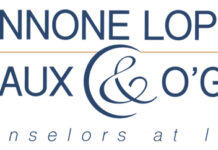New Program Offers Grants/Forgivable Loans to Homeowners and Landlords
Providence, R.I. (March 28, 2011) – U.S. Senator Jack Reed, U.S. Senator Sheldon Whitehouse and U.S. Representative David Cicilline joined Rhode Island Housing to announce the availability of $3.1 million for lead paint hazard control and lead awareness programs in the state. The federal grant, allocated to Rhode Island Housing by the U.S. Department of Housing and Urban Development (HUD) earlier this year, will be used to remediate and address lead and other health hazards in hundreds of Rhode Island homes; train workers in remediating lead hazards; and conduct education and outreach to raise awareness about the dangers of lead paint.
“Lead poisoning can cause irreversible damage to young people. This federal grant will help remove lead hazards from areas that are at risk and educate parents about the steps they can take to help protect their children and families,” said Reed, a member of the Appropriations Committee who has helped secure over $40 million for Rhode Island lead poisoning prevention programs, and successfully increased HUD’s budget for lead-abatement work over the years.
The new LeadSafe Homes program is available to eligible homeowners and landlords in the form of grants and forgivable loans. A 50 percent grant for the total cost of the lead remediation work is provided to both homeowners and landlords. Homeowners receive a 5 year forgivable loan for the balance of the cost. Landlords are provided with a 10 year forgivable loan for the balance. If the homeowner or landlord sells the property within the 5 or 10 year period, the balance of the loan is payable to the program.
The funds can be used to eliminate the hazards of lead in the following ways: Installing new windows and doors, interior and exterior painting, and removing and treating soils in yards and play areas. Trained inspectors will evaluate the homes at no cost to the owner and determine what work needs to be done to control lead hazards in homes.
Homeowners who qualify for the program will be provided with funds to pay for the work, which must be completed by a lead-licensed contractor. Eligible landlords will be provided with the resources to help with tenant relocation expenses while the work is being completed.
“For years, lead poisoning has been one of Rhode Island’s worst public health problems for children,” said Senator Sheldon Whitehouse. “This new program will give eligible Rhode Island homeowners the financial resources necessary to significantly reduce lead exposure and help prevent harm to our children.”
“A safe home is essential to a healthy family and strong neighborhoods and one of the ways we can ensure a healthy living space is by making sure it’s lead-free,” said Congressman Cicilline. “Today’s announcement highlights the vital role federal funding plays in building safer and healthier communities. At a time when many essential programs – including housing programs – are facing devastating cuts, I will continue to fight in Congress to protect and grow the critical investments in our people and neighborhoods that provide the foundation for achieving the American dream.”
According to the state Office of Housing and Community Development, about 300,000 homes, or 70 percent of the state’s housing stock was built prior to 1978, when the use of lead paint was prevalent. Of these houses, 30,000 or 10 percent are at high risk and in desperate need of repair.
“Thousands of lead-painted homes in Rhode Island are in need of rehabilitation and this new funding will allow hundreds of families to make life-changing improvements, at no cost,” said Richard Godfrey, Executive Director of Rhode Island Housing. “The LeadSafe Homes program will ensure that all lead remediation will be done safely, allowing children to be safe from lead hazards and be healthier overall and do better in school.”
Households with pregnant women or children under 6-years-old are encouraged to apply, as are landlords who have tenants with young children.
Some of the funding will be used for education and public outreach. Rhode Island Housing will be working with the Community College of Rhode Island (CCRI) to educate more than 300 contractors about the lead-hazard control procedures. More than two dozen training sessions will be held at various locations across the state. Work will also be done to educate parents about the dangers of childhood lead poisoning and inform them how to protect their children and families.
“The Rhode Island Department of Health (HEALTH) has worked diligently in the past decade to help Rhode Islanders understand the dangers of lead paint and how to prevent lead poisoning,” said Interim Director of Health Michael Fine, MD. “These new resources will help current and future homeowners, tenants, and landlords make homes safe and healthy.”
Rhode Island Housing is working with several community agencies to administer the new LeadSafe Homes program and accept applications. Partners include: Blackstone Valley Community Action Program (BVCAP), East Bay Community Action Program, West Bay Community Action Program and the Childhood Lead Action Project. Homeowners or landlords who are interested in learning more about this program can visit www.rhodeislandhousing.org, email leadsafe@rhodeislandhousing.org, call 401-450-1350 or contact one of the partner agencies.
About Rhode Island Housing
Rhode Island Housing is a self-sustaining public agency, which generates its own operating income, without state funding. Everything the agency earns is reinvested to provide homes for Rhode Islanders. Together with its partners, the agency works to ensure that all people who live and work in Rhode Island can afford a safe, healthy home that meets their needs. Rhode Island Housing provides low-interest loans, grants, education, and advocacy to help its customers rent, buy, build and retain their homes. It also offers special programs to ensure that these homes are safe and healthy.









